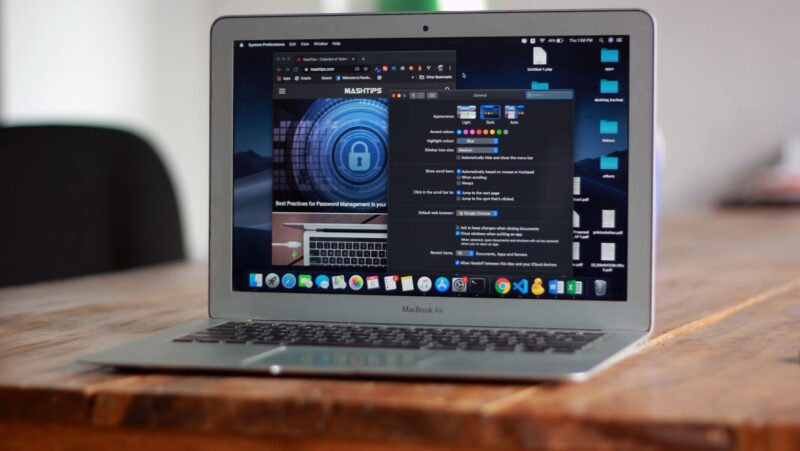
Introduction
The digital landscape of financial transactions is undergoing a radical transformation, fueled by the convergence of artificial intelligence (AI) and digital wallets. Among the cutting-edge technologies propelling this evolution is the Multi-Party Computation (MPC) wallet, a revolutionary tool enhancing security and efficiency in financial transactions. This blog post explores how AI-driven financial transactions are being enhanced by digital wallets, with a particular focus on MPC wallets, highlighting their benefits, applications, and future potential.
The Rise of Digital Wallets in Financial Transactions
Digital wallets have become a cornerstone of modern financial transactions, offering a convenient, fast, and secure way to manage and transfer funds. With the increasing reliance on smartphones and mobile applications, digital wallets have gained widespread adoption among consumers and businesses alike. They facilitate a variety of transactions, from everyday purchases to complex financial operations, all while ensuring user data protection and transaction integrity.
Benefits of Digital Wallets
- Convenience: Digital wallets eliminate the need for physical cash or cards, allowing users to make transactions anytime, anywhere, with just a few taps on their devices.
- Security: Advanced encryption technologies and biometric authentication methods protect sensitive information, reducing the risk of fraud and unauthorized access.
- Speed: Transactions via digital wallets are typically faster than traditional methods, enabling real-time payments and reducing processing times.
- Integration: Digital wallets can seamlessly integrate with various financial services, including banking, investments, and insurance, providing users with a comprehensive financial management tool.
AI in Financial Transactions
Artificial intelligence has emerged as a game-changer in the financial sector, offering unprecedented capabilities to analyze vast amounts of data, detect patterns, and make informed decisions. AI-driven financial transactions leverage machine learning algorithms, natural language processing, and predictive analytics to enhance various aspects of financial operations.
Key Applications of AI in Financial Transactions
- Fraud Detection and Prevention: AI algorithms can analyze transaction data in real-time, identifying suspicious activities and preventing fraudulent transactions before they occur.
- Personalized Financial Services: AI enables financial institutions to offer personalized services tailored to individual customer needs, such as customized investment advice and targeted promotions.
- Risk Management: AI-driven models can assess and predict risks more accurately, helping financial institutions make better-informed decisions and mitigate potential losses.
- Automated Customer Support: AI-powered chatbots and virtual assistants provide efficient customer support, addressing queries and resolving issues promptly.
Introduction to MPC Wallets
Multi-Party Computation (MPC) wallets represent a significant advancement in digital wallet technology, offering enhanced security and privacy features. Unlike traditional digital wallets, which rely on a single private key to authorize transactions, MPC wallet use a distributed approach to key management.
How MPC Wallets Work
MPC wallets divide the private key into multiple shares distributed among different parties or devices. These parties collaboratively compute transactions without ever reconstructing the full private key, ensuring that no single entity has complete control over the key at any time. This approach offers several benefits:
- Enhanced Security: By distributing key shares, MPC wallets eliminate single points of failure, making it significantly harder for attackers to compromise the key.
- Privacy: The distributed nature of MPC ensures that sensitive information is not exposed to any single party, protecting user privacy.
- Fault Tolerance: MPC wallets can continue to operate even if some parties are compromised or go offline, ensuring uninterrupted access to funds.
Enhancing AI-Driven Financial Transactions with MPC Wallets
The integration of AI with MPC wallets creates a powerful synergy that enhances the security, efficiency, and user experience of digital financial transactions. Here are some key ways in which MPC wallets are enhancing AI-driven financial transactions:
-
Robust Fraud Detection
AI algorithms can analyze transaction data in real-time, detecting anomalies and potential fraud. When integrated with MPC wallets, this capability is further enhanced. The distributed nature of MPC ensures that even if some nodes are compromised, the integrity of the transaction process remains intact. This makes it extremely difficult for malicious actors to manipulate transactions or steal funds.
-
Improved User Authentication
AI-driven biometric authentication methods, such as facial recognition and fingerprint scanning, are widely used in digital wallets. MPC wallets can leverage these AI technologies to provide multi-layered authentication.

For instance, AI can continuously monitor and analyze user behavior, such as typing patterns and location data, to detect any deviations from the norm. If an anomaly is detected, additional authentication steps can be triggered, enhancing security.
-
Personalized Financial Management
AI can analyze user spending patterns, financial goals, and market trends to provide personalized financial advice and recommendations. MPC wallets can securely store and process this sensitive data, ensuring that user privacy is maintained. By combining AI-driven insights with the security of MPC wallets, users can receive tailored financial advice without compromising their data.
-
Efficient Transaction Processing
AI algorithms can optimize transaction routing and processing, reducing latency and improving the overall efficiency of financial operations. MPC wallets can distribute transaction processing tasks among multiple nodes, ensuring that transactions are executed quickly and reliably. This distributed approach also enhances fault tolerance, ensuring that transactions can proceed even if some nodes are unavailable.
-
Enhanced Privacy and Confidentiality
MPC wallets provide a high level of privacy and confidentiality by ensuring that private keys are never fully reconstructed.

This is particularly important in AI-driven financial transactions, where sensitive data is continuously analyzed and processed. By using MPC wallets, financial institutions can ensure that user data remains secure and confidential, even during complex AI-driven analyses.
Future Potential of MPC Wallets in AI-Driven Financial Transactions
The future of AI-driven financial transactions looks promising with the continued evolution of MPC wallets. As AI technologies become more sophisticated, the need for secure and efficient transaction methods will only increase. MPC wallets, with their enhanced security and privacy features, are well-positioned to meet this demand.
Potential Developments
- Integration with Blockchain: Combining MPC wallets with blockchain technology can further enhance the security and transparency of financial transactions. Smart contracts can be used to automate and enforce transaction rules, while MPC ensures the confidentiality of transaction data.
- Decentralized Finance (DeFi): MPC wallets can play a crucial role in the burgeoning DeFi ecosystem, enabling secure and private transactions on decentralized platforms.
- AI-Driven Investment Platforms: MPC wallets can be integrated with AI-driven investment platforms, providing users with secure and personalized investment strategies.
- Cross-Border Transactions: MPC wallets can facilitate secure and efficient cross-border transactions, reducing the reliance on traditional banking systems and lowering transaction costs.
Conclusion
The integration of AI and digital wallets, particularly MPC wallets, is transforming the landscape of financial transactions. MPC wallets offer enhanced security, privacy, and efficiency, making them an ideal choice for AI-driven financial operations. As the financial industry continues to evolve, the synergy between AI and MPC wallets will play a crucial role in shaping the future of digital finance. By leveraging the strengths of both technologies, we can create a more secure, efficient, and personalized financial ecosystem for users worldwide.










